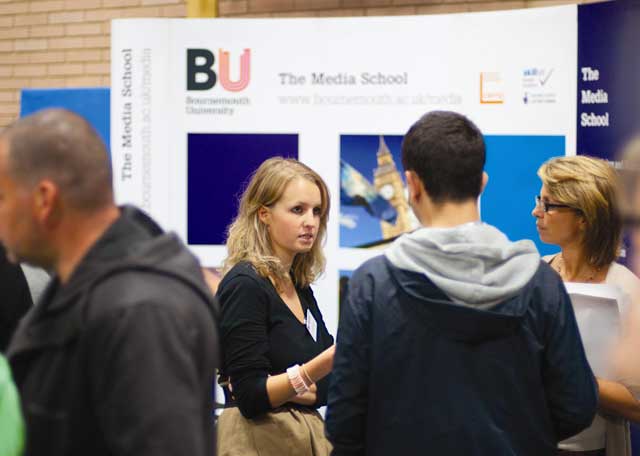Why you need to look around the campus
Talking to students is one of the most important things you can do on your visit

The university you go to may well end up shaping your future: you're going to spend the first three or four years of your adult life there, living and working with people who could become lifelong friends. That makes the decision pretty important, so you really shouldn't go into it lightly.
Luckily, there is more than enough help at hand to make that choice. Most universities have great prospectuses, while their websites are packed with detail about campus life. If you want to get the best look at an institution, though, you need to go to its open days.
"The open day works best as an opportunity for people to come and see the university in person rather than just relying on the web," says Charles Elder, Bournemouth University's press and PR manager. "Picking your university is like buying a house – it's about getting a gut feeling by talking to staff and students, and seeing if you're going to gel."
Mandy Firth, head of undergraduate recruitment at Keele University, believes that an open day can also be very helpful for prospective students to help them decide the degree they'll end up doing.
She suggests that anyone planning on attending an open day needs do a bit of homework before they make the visit; if you know what you're going to ask, you'll learn a lot more about whether this particular university is going to be right for you.
"We encourage students to book in advance, so they can get their hands on a programme, and make a plan to get the most out of the day. There are a lot of things going on, and people need to know what they want to ask about. It's probably best to come up with a list of questions beforehand, and to know who to talk to," she says.
There are plenty of practical questions to ask. On the big open days, the faculties throw their doors open as well, so take the opportunity to find out about the facilities – are the labs, the lecture theatres and the library what you are looking for? Remember – this is where you'll be studying for the next few years. Ask also about IT provision: how much access will students have to their teachers; and what will the workload is like.
Of course, university life isn't all about graft, so ask about clubs and societies – what are the sports teams or the orchestras like, and how can students become involved?
There will usually be current students on hand to show you around and answer the questions you have that the organisers can't answer. They will be able to tell you about the social life, the academic side from the consumer's viewpoint, and whether the food is as tasty as the prospectus says.
Firth believes that talking to students is one of the more important things to do on an open day. It's important to seek out kindred spirits on campus, and if you've met several beforehand, it helps.
There will probably be several talks throughout the day on the nuts and bolts of student life. Nottingham University has experts talking about accommodation, living away from home, and the all-important matter of student finance, according to events officer Jenny Wardrop. It also offers optional bus tours of the city and surrounding area, so prospective students can get an idea of what life is like off-campus for when they move out of halls.
Keele on the other hand has what Firth calls a marketplace, a hall where parents and students can have words with the careers department, the estates people, disabilities reps, and even people from the local council, so you can find out more about the local area.
Wardrop reckons that a pre-application open day is good for people in Year 12 or 13 who want to narrow down their choices. Nottingham's June and September weekends, which she helps to run, will attract 20,000 visitors each. It also runs eight more mini "campus tour days" throughout the year, for people who can't attend the big shindigs.
"Every university will be somewhat the same, so you're looking at the little things that make all the difference," Elder says. "This is your chance to look behind the scenes. You should try to get under the skin and get a sharper view of how life on the campus really is. Above all, you've got to be able to picture yourself there."
Join our commenting forum
Join thought-provoking conversations, follow other Independent readers and see their replies
Comments
Bookmark popover
Removed from bookmarks